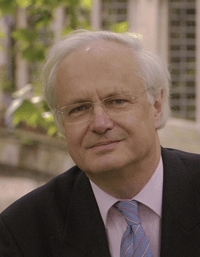Cambridge-Elan Centre for Research Innovation and Drug Discovery launched
Posted: 28 November 2011 | | No comments yet
World’s leading researchers work together on therapeutic advances in neuroscience…


Professor Christopher Dobson
The University of Cambridge and Elan Corporation plc.(NYSE: ELN) today announced the launch of The Cambridge-Elan Centre for Research Innovation and Drug Discovery (Cambridge-Elan Centre), which will be located at the University of Cambridge, England. The Cambridge-Elan Centre will provide a highly interdisciplinary environment uniquely positioned for delivering world-leading translational research focused on innovative therapies for Alzheimer’s and Parkinson’s diseases. This ten-year agreement paves the way for a long-term collaboration between Elan and the University of Cambridge.


Professor Christopher Dobson
The goal of the Cambridge-Elan Centre is to discover novel compounds capable of altering the behaviour of proteins associated with neurodegenerative disorders that can be developed into new treatments. The Centre will bring together Elan’s two decades of experience in Alzheimer’s research and its depth in biology and model systems with the University of Cambridge’s pioneering contributions in the development of biophysical approaches to study the molecular basis of protein misfolding and aggregation, and their links to disease.
Through the combination of unique strengths, the Cambridge-Elan Centre will enable investigators across the two organisations to explore novel approaches to improve the understanding of biophysical and biochemical aspects of protein folding and misfolding, and to explore unique approaches to modulate these processes in an effort to discover new therapeutics.
‘This agreement is a natural next step in the existing working relationship between our scientists in South San Francisco and scientists at the University of Cambridge,’ said Dale Schenk, Ph.D., executive vice president and chief scientific officer at Elan. ‘This collaborative effort complements our portfolio of programs in neuroscience and supports the process of discovery which we believe may lead to a class of therapeutics that no one has thought possible before.’
Ted Yednock, PhD, executive vice president and head of discovery and translation for Elan went on to say, ‘Protein folding, misfolding and turnover are central to neurological disease and will be the basis for further scientific and therapeutic advancements. Our relationship with Cambridge will enable us to address the interconnecting biology and biophysics of protein misfolding in multiple disease areas simultaneously and in a timely way for the ultimate benefit of patients.’
Commenting on the Centre, Vice-Chancellor of the University of Cambridge, Professor Sir Leszek Borysiewicz said, ‘This exciting collaboration between Cambridge and Elan highlights how, by building on the strengths of each of the organisations, we may find new ways to treat – and beat – debilitating diseases like Alzheimer’s and Parkinson’s, expediting the development of fundamental research into viable treatments for the benefit of the millions they affect.’
Speaking about his relationship with Elan and the launch of the Cambridge-Elan Centre, Professor Christopher Dobson FRS, the John Humphrey Plummer Professor of Chemical and Structural Biology at the University of Cambridge and Master of St. John’s College said, ‘I believe that we are creating a Centre that will become globally recognized for innovation. Our collective expertise, proven ability to collaborate, and open innovation model provide an exciting basis for the future. The new Centre will bring together the skills of scientists working in an academic institution and in a biotechnology company to develop new and more effective therapies for some of the most devastating and increasingly common human diseases.’




